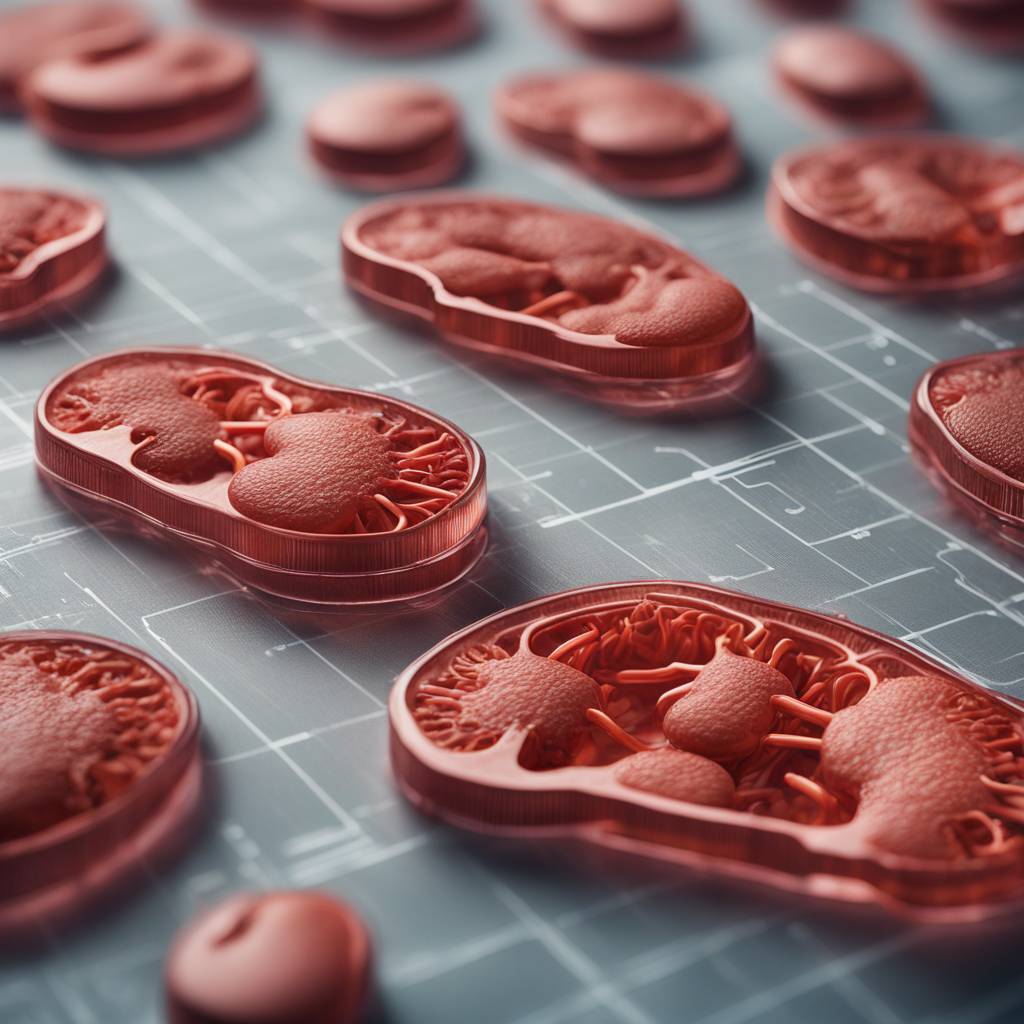Researchers at Nanyang Technological University in Singapore have successfully developed ‘mini kidneys’ in the lab and transplanted them into live mice to study polycystic kidney disease (PKD). PKD is a common genetic condition that affects 1 in 1000 individuals and can lead to end-stage kidney disease. Current treatment options like dialysis and kidney transplants have limitations, making the need for more effective therapies crucial. The team at NTU grew kidney organoids from skin cells of PKD patients and engrafted them into mice to better understand the disease’s progression and explore potential treatments.
Previous studies on mini kidneys grown in a dish had limitations in replicating the kidney’s complex structure and functions. By transplanting the mini kidneys into live mice, the researchers were able to mimic the pathological features of PKD more accurately, including cyst formation and damage to kidney tubules. This approach allowed them to study the disease’s characteristics closely and develop potential therapies to address the metabolic defects associated with PKD.
The researchers found that boosting autophagy, a cellular process involved in maintaining cell health, could reduce the severity of cysts in their mini kidney model of PKD. They also tested 22 drugs known for their effects on cell metabolism and found that minoxidil, a drug used to treat hypertension and hair loss, effectively reduced cyst formation in the mice. These findings offer a promising avenue for developing new treatments for PKD patients and potentially repurposing existing drugs for this purpose.
The establishment of mini kidney models in live mice brings researchers one step closer to finding more effective treatments for polycystic kidney disease. An effective treatment for PKD could help reduce the incidence of chronic kidney diseases and kidney failure among adults, highlighting the importance of continued research in this area. Future studies will focus on further investigating the potential of minoxidil as a treatment for PKD and expanding the use of mini kidney models to study other kidney diseases with different underlying causes.
The study conducted at NTU provides valuable insights into the pathogenesis of polycystic kidney disease and offers a potential therapeutic strategy for patients with this condition. By engrafting mini kidneys into live mice, the researchers were able to accurately replicate the disease’s characteristics and test novel treatments that could benefit PKD patients in the future. Collaborative efforts between researchers, clinicians, and experts in the field of kidney diseases are essential to further the understanding of PKD and develop more effective treatment options.






